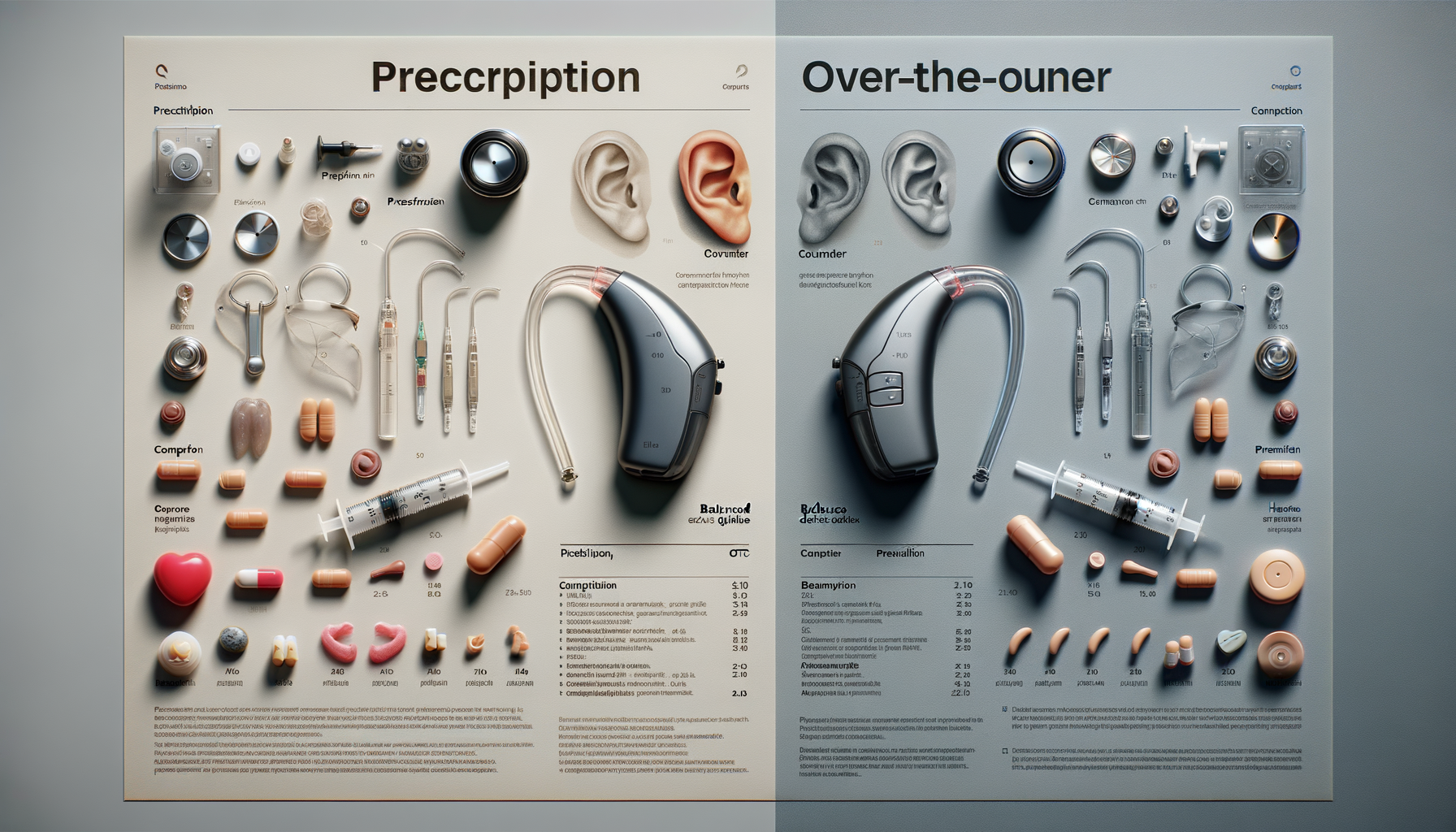Understanding Prescription Hearing Aids
Prescription hearing aids are custom-fitted devices that require a visit to an audiologist or hearing specialist. These aids are tailored to meet the specific hearing needs of individuals, often providing a comprehensive solution for those with moderate to severe hearing loss. The process begins with a thorough hearing assessment, where an audiologist evaluates the degree and type of hearing loss. This personalized approach ensures that the hearing aid is calibrated to amplify the frequencies that the individual struggles with most.
One of the significant advantages of prescription hearing aids is their advanced technology. Many models come equipped with features such as noise reduction, directional microphones, and Bluetooth connectivity. These features enhance the listening experience in various environments, from quiet rooms to bustling streets. Additionally, prescription hearing aids often offer more robust support and follow-up care. Users benefit from regular check-ups and adjustments, ensuring the device continues to meet their evolving needs.
However, the personalized nature of prescription hearing aids comes at a cost. They tend to be more expensive than their over-the-counter counterparts, with prices varying based on the level of technology and features included. Despite the higher cost, many users find the investment worthwhile due to the tailored fit and superior performance.
Exploring Over-the-Counter Hearing Aids
Over-the-counter (OTC) hearing aids have become increasingly popular due to their accessibility and affordability. These devices are available without a prescription, allowing individuals to purchase them directly from retail outlets or online stores. OTC hearing aids are designed for adults with mild to moderate hearing loss and offer a convenient solution for those who might not have easy access to professional audiological services.
The primary appeal of OTC hearing aids lies in their cost-effectiveness. They are generally less expensive than prescription models, making them an attractive option for budget-conscious consumers. Additionally, the ease of purchase and use makes them a practical choice for individuals seeking a straightforward solution to hearing difficulties.
Despite their advantages, OTC hearing aids may not offer the same level of customization and technological sophistication as prescription aids. They typically lack features like personalized frequency amplification and advanced noise-canceling capabilities. As a result, users may experience limitations in performance, particularly in challenging listening environments. It’s essential for potential buyers to carefully consider their specific hearing needs and evaluate whether an OTC model will adequately meet those requirements.
Comparing Costs and Accessibility
When comparing prescription and OTC hearing aids, cost and accessibility are critical factors. Prescription hearing aids often come with a higher price tag due to the personalized fitting process and advanced technology. The cost can range from several hundred to several thousand dollars, depending on the features and brand.
On the other hand, OTC hearing aids are typically more affordable, with prices ranging from a few hundred dollars. This price difference makes OTC aids a viable option for those with budget constraints. Moreover, the convenience of purchasing OTC aids without needing an appointment or fitting session adds to their accessibility.
However, it’s important to weigh these financial savings against the potential limitations in performance and support. While OTC aids offer immediate relief for mild hearing loss, individuals with more severe conditions may find that the investment in prescription aids provides greater long-term value and satisfaction.
Technological Features and Performance
The technological features of hearing aids play a significant role in their performance and user satisfaction. Prescription hearing aids often boast a wide array of advanced features designed to enhance the listening experience. These may include adaptive sound processing, feedback cancellation, and connectivity with smartphones and other devices. Such features are particularly beneficial in dynamic environments where background noise can interfere with hearing clarity.
In contrast, OTC hearing aids typically focus on basic amplification and may lack some of the sophisticated technology found in prescription models. While they can effectively amplify sound for those with mild hearing loss, they might not provide the same level of clarity and customization. Users should consider their daily listening environments and whether they require features like directional microphones or wireless connectivity.
Ultimately, the choice between prescription and OTC hearing aids will depend on individual needs and preferences. Those who prioritize advanced technology and personalized fitting may lean towards prescription options, while others who value simplicity and affordability might opt for OTC solutions.
Making an Informed Decision
Choosing between prescription and over-the-counter hearing aids involves careful consideration of various factors, including the severity of hearing loss, budget, and lifestyle needs. For individuals with significant hearing challenges, prescription aids offer a tailored approach with professional support, ensuring optimal performance and satisfaction.
Conversely, OTC hearing aids provide a practical and cost-effective solution for those with mild to moderate hearing loss. They offer the convenience of direct purchase and immediate use, making them an ideal choice for individuals seeking a straightforward option.
Before making a decision, it’s advisable to consult with a hearing specialist to assess your specific needs and explore the available options. This consultation can help clarify the benefits and limitations of each type of hearing aid, guiding you towards a choice that aligns with your auditory requirements and lifestyle.
Ultimately, the right hearing aid should enhance your quality of life, providing clarity and comfort in your daily interactions. By weighing the pros and cons of prescription and OTC options, you can make an informed decision that meets your unique hearing needs.








